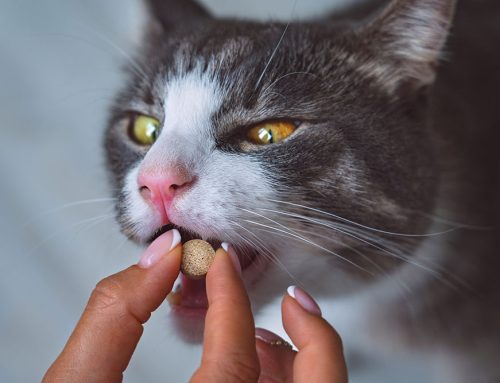With temperatures that rarely come close to freezing in our little slice of heaven, insects never die off during the winter as they do in colder areas of the country. Year-round insect bites are a small price to pay for avoiding blizzards, icy roads, and drifting snow, especially since our pets also enjoy the warmer weather. But, with the ever-present insect population ruining our pleasant time outdoors, dogs are always at risk for heartworm disease, which can be fatal.
What is heartworm disease?
Heartworm disease is a serious and potentially fatal condition that affects many mammals, but is most commonly found in dogs or wild canines. Caused by the bite of an infected mosquito, any dog, including those who only go outside to eliminate, can contract heartworm disease. Heartworms have a lengthy life cycle, so owners don’t notice disease signs immediately.
When an infected mosquito bites your pet, immature heartworms, or microfilaria, are deposited on her skin and enter her body through the bite wound. From there, they make their way to the blood vessels surrounding the heart and lungs, where they mature and reach adulthood in about six months, which is when they begin to reproduce. Adult heartworms resemble spaghetti noodles, and can grow to be up to 12 inches long. The worms can live in dogs for five to seven years and can severely damage the heart, lungs, and surrounding blood vessels.
Heartworms must pass through a mosquito to complete their life cycle, which means that the adult heartworm population in a pet will not increase without additional bites from infected mosquitoes. A mosquito becomes infected after ingesting microfilaria during a bite. The microfilaria reach their infective stage inside the mosquito in 10 to 14 days and can then re-infect your pet.
But, this does not mean that one bite from an infected mosquito is no big deal. A single bite can transmit up to 300 microfilaria, which then grow into foot-long worms that infiltrate your pet’s circulatory system around her heart and lungs. Such large worms can wreak havoc in your pet and leave her circulatory system scarred and damaged, despite treatment.
What are the signs of heartworm disease in dogs?
As heartworms are not your typical “worm” that infects the intestinal tract, they don’t cause diarrhea or the bloody stool often seen with roundworm, hookworm, or whipworm infections. Instead, heartworms can cause the following signs, depending on the disease stage:
- Mild, persistent cough
- Reluctance to exercise
- Fatigue after moderate activity
- Decreased appetite
- Weight loss
- Labored breathing
- Pot-bellied appearance caused by heart failure
Dogs with the beginning stage of heartworm disease often display no signs, but as the heartworms cause more damage and scar the body, the effects of the disease worsen.
How is canine heartworm disease treated?
Heartworm disease requires lengthy treatment. After our team has diagnosed a dog with heartworm disease through a simple blood test, we stage the disease to determine its severity. Blood work and chest X-rays provide enough information for us to choose the appropriate treatment protocol.
Depending on your dog’s disease severity, we may prescribe oral antibiotics and steroids prior to heartworm treatment, which consists of a series of deep intramuscular injections in the lumbar region, and requires hospitalization and close monitoring for adverse effects.
After treatment, your dog still cannot return to her normal life, because the heartworms that die after the treatment injections break up and can form clots in the bloodstream as the body tries to eliminate them. Active dogs are more likely to suffer from this complication, so strict cage rest is vital for an uneventful recovery.
How can I protect my dog from heartworm disease?

Heartworm-disease prevention is a cinch compared with treatment. Protecting your pet from a disease that can leave lasting damage or cause death is as simple as scheduling an annual wellness visit at our hospital, when we will administer an injection, such as ProHeart 12, that will ensure one full year of constant protection, without the need for monthly topical or oral medication.
We offer other heartworm-preventive options, but we are especially excited about the once-yearly ProHeart 12 injection and its convenience. Give us a call to discuss the best heartworm preventive for your pet.








Leave A Comment